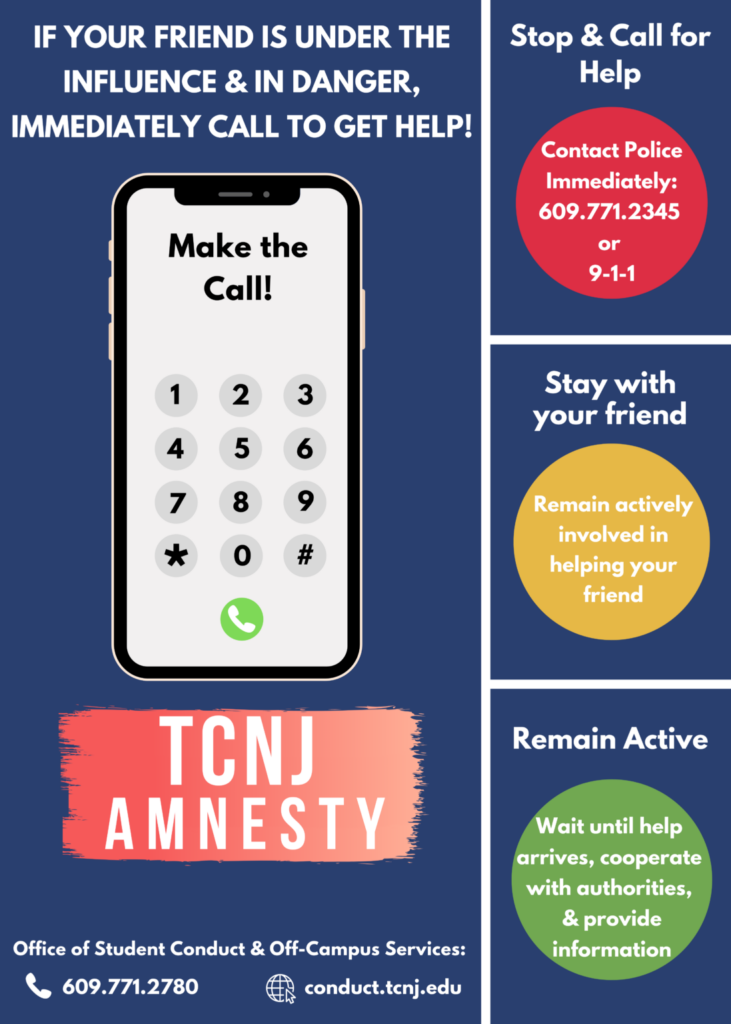The goal of this policy is to encourage students to prioritize health and safety without fear of disciplinary action, promote responsible decision-making in emergencies, and support students in accessing resources that prevent future harm.
Amnesty Steps
The student/RSO calls for help during a medical emergency related to alcohol or drug use (for themselves or another student.) The incident should be reported by contacting 911, Campus Police (609-771-2345), or Residential Education/Campus Town staff.
The student/RSO that called remains on scene with the student getting help.
The student/RSO is helpful to responders including providing any information they may have regarding the student’s consumption of alcohol/drugs or other relevant information. This includes medical staff, police, or College officials.
What happens next?
- Amnesty applies to both the student who received help as well as the caller(s). Students/RSOs that qualify for Amnesty will be required to complete an education program assigned by the College but will not face conduct charges.
- Students who are transported may have a “return to campus” meeting scheduled for the first business day following the incident. During that meeting, the Director of Student Conduct, Director of Residential Education, or other administrator will determine if the student qualifies for amnesty on campus.
- Amnesty does not relieve any student or RSO from responsibility for other policy violations that may have occurred prior to seeking medical attention. However, seeking help for the affected student may be considered a mitigating factor in sanctioning.
- If a student has been issued a citation/summons from police, it will be determined in court if the incident qualifies under the NJ 911 Lifeline Legislation (P.L. 2009, c.133). This process is separate from the College’s Amnesty process.
Amnesty Definition
The College’s highest priority is the physical and mental health, safety, and well- being of individual Students and the campus community. Therefore, no Student seeking medical attention by contacting either College or local authorities for a Drug overdose (nor a Student who seeks medical attention on behalf of the affected Student) and cooperates with and/or assists any medical, College, or law enforcement officials will be formally charged under the Student Conduct Code for the unlawful use or possession of a Drug. Although this does not relieve any Student or organization from responsibility for other Policy violations that may have occurred prior to seeking medical attention, the effort to seek help for the affected Student may be a mitigating factor in sanctioning. Affected Students may be required to complete an evaluation or other education programs, but will not face disciplinary charges or sanctions as prescribed through the Student Conduct process.
Other Conduct Resolution Options and Processes Alcohol and Drug Support Services

